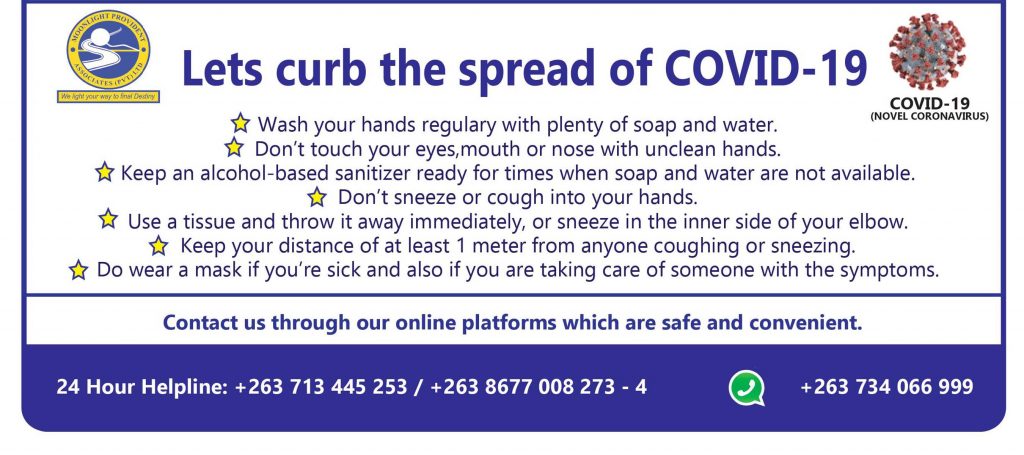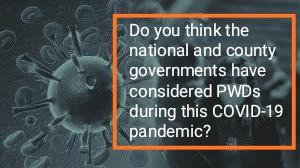By Veritas
Provisional Order Against Ministers About to become Permanent?
The last day for filing the response from the Ministers responsible for Information, Health, and Social Welfare was today, Friday 8th May. The Ministers had been ordered to respond to a provisional order served on them on the 23rd April to improve the dissemination of official Government information to deaf and blind persons.

The proceedings against ZBC also described below have already concluded with a final court order against ZBC to cater more extensively for the information needs of people with disabilities, particularly the deaf and the blind.
Background
For some years the Deaf Zimbabwe Trust [DZT] has been engaging the Zimbabwe Broadcasting Corporation [ZBC] to cater for the interests of deaf and hard of hearing persons by using sign language or captions in television programmes to a greater extent and more consistently. Similarly, the Zimbabwe National League of the Blind [ZNLB] has long been campaigning for Government to make official Government information available to blind and low-sight persons in formats accessible to them, such as Braille.
The disadvantages suffered by the estimated 200 000 deaf and hard of hearing and 200,000 blind and partially sighted persons in Zimbabwe were brought into sharp focus by the lead-up to and announcement of the COVID-19 National Lockdown, and the accompanying flood of news in the media, including television, and official Government information about the COVID-19 pandemic and measures against it. Concerned organisations assessed that the COVID-19 pandemic made the information deficit potentially life-threatening for both disadvantaged groups.
Lawyers’ letters early in April notified these concerns to ZBC and Government Ministries responsible for dissemination of information. No response was received. This prompted the filing of an urgent High Court application by the Centre for Disability and Development Trust [CDDT], DZT and ZNLB against the ZBC, the Minister of Information, Publicity and Broadcasting Services, the Minister of Health and Child Care and the Minister of Public Service, Labour and Social Welfare in their official capacities [the respondents].
The Court Application
The application requested both provisional and final court orders to compel the respondents to disseminate information about COVID-19 “in a manner accessible to persons with disabilities, notably hearing- and visually-impaired persons”. The application was presented as an application for the enforcement of fundamental constitutional rights in terms of the following sections, to seek and receive information [61]; to access to information [62]; to equality and non-discrimination [56]; to health care [76]; of disabled persons [83] and to life [48]. Also cited were the State’s constitutional obligation to take measures to enable persons with disabilities to enjoy their rights [section 22].
The Court Hearing
The case was heard by Justice Mafusire High Court in Harare on 20th April. The three applicants were represented by Messrs DJ Coltart, T Chinopfukutwa and D Halimani. The ZBC was represented by Mr ET Moyo. All three Ministers, the second to fourth respondents, were in default and were not legally represented. Justice Mafusire gave his decision the same day. As ZBC, through Mr Moyo, consented to the issue of a final order instead of the requested provisional order the judge made two orders, a final order directed at ZBC and completing the proceedings against ZBC, and a provisional order directed at the three Ministers against whom the proceedings will continue in due course, as outlined below. The complete texts of the orders can be downloaded from the Veritas website [link].
Final order for ZBC
ZBC must do the following things:
1. Provide subtitles or captions, i.e. word-for-word transcription of the dialogue, for all pre-recorded programmes.
2. Provide sign language interpretation for all main bulletins, i.e., lunch-time news, 8 pm news and 11 pm news.
3. Allow the DZT to second trained sign language interpreter/s to ZBC to provide additional sign language interpretation beyond ZBC’s existing capacity.
4. Provide sign language interpretation for all live announcements, subject to ZBC receiving sufficient notice. .
5. Progressively increase the provision of sign language interpretation for all live programming, including news bulletins.
Note that the order is not restricted to programmes, bulletins and live announcements about COVID-19, so apparently it will apply indefinitely, even after the pandemic is over.
Provisional order for Ministers
The provisional order is divided into two parts:
(1) A show cause order which gives the three Ministers [see above] 10 days from the date of service of the provisional order and annexed papers upon them, to “show cause” to the court why the court should not make a final order against them to the effect:
1. They must consistently ensure that written Government communications on matters of public importance are distributed in formats that are accessible to blind and partially sighted persons;
2. There be no order as to costs unless the respondents have unreasonably opposed.
Note that this order, too, is not restricted to communications about COVID-19, so apparently would apply indefinitely, even after the pandemic is over.
(2) An interim order which lays down what the various Ministers are ordered to do with effect from the 20th April until the date on which the matter again comes before the court [the “return date”]:
3. Information and Health Ministers must immediately cause the production of pamphlets in Braille and large text with information about COVID-19 including the disease itself, how to prevent contracting it, how and where to access health care facilities and emergency contact details.
4. All three Ministers must distribute the information referred to in paragraph 1 to visually impaired persons throughout Zimbabwe, including by providing the information to CDDT and ZNLB and any other organisations representing the interests of visually impaired registered in the Social Welfare Ministry’s database, and by providing the information at all health care centres.
5. All three Ministers must also immediately ensure that all written information about COVID-19 provided by Government, including daily updates, is provided in formats accessible to blind and partially-sighted persons [details of the formats are given] – including providing the information to the organisations mentioned in paragraph 2.
6. The Health Minister must ensure that his Ministry’s COVID-19 hotlines and centres are staffed by persons equipped to deal with the unique needs of persons with disabilities.
7. The Information Minister must immediately issue a statement urging private entities, including mass media and hospitals, to ensure that any services they provide to the public relating to COVID-19 are accessible to persons with disabilities – to include provision of accessible information about how and where such persons can access, testing and treatment for COVID-19.
8. The Information Minister must also give ZBC sufficient notice of any intended announcement by Government pertaining to COVID-19.
What Comes Next?
As we have already said, the case against ZBC is now over.
But continuation of the case against the three Government Ministers is still pending. Its eventual outcome will depend on whether or not they have filed before due date and served on the three applicants a Notice of Opposition seeking changes to it or its setting aside. The due date is today, Friday 8th May. If the Ministers wish to oppose, they will have to justify their stance to the court at a further hearing in due course. If they fail to oppose, they run the risk that the case will proceed as an unopposed matter, without their participation, in which event the court may confirm that the first part of the provisional order, will become the final order, i.e. that:
1. The Ministers must consistently ensure that written Government communications on matters of public importance are distributed in formats that are accessible to blind and partially sighted persons;
2. There be no order as to costs unless the respondents have unreasonably opposed.






